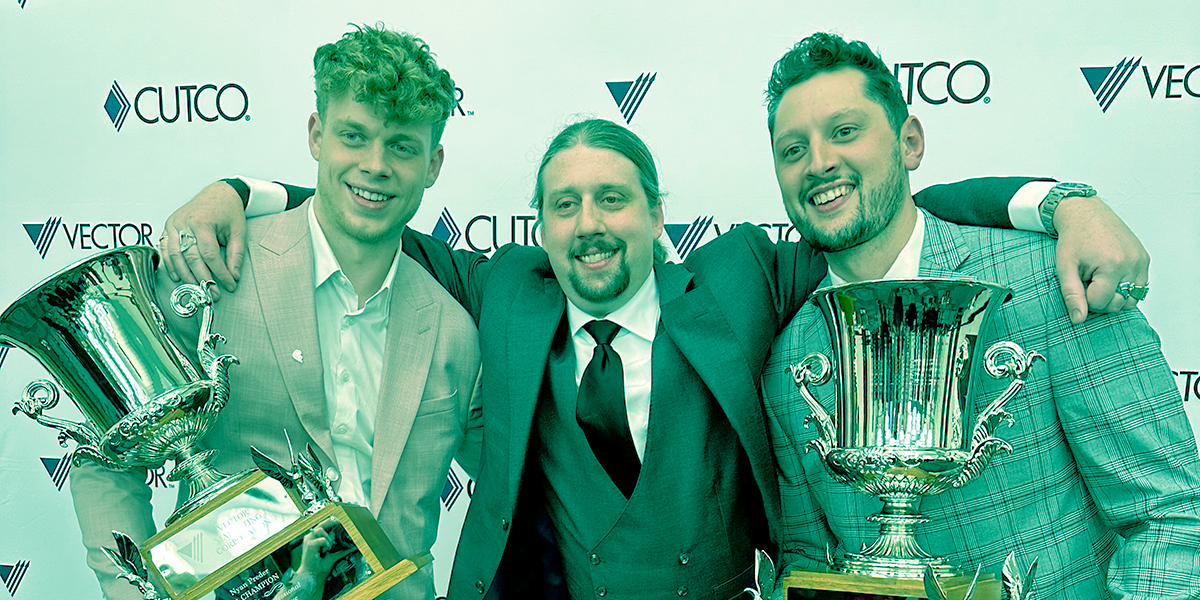
A young woman makes her Uber driver wait outside while she films herself walking out of her apartment over and over until she gets the perfect shot.
The mother of a bride wants to wear a white dress to her daughter’s wedding, and when she is denied, wears a see-through blue dress instead.
A social media influencer films their ascent to the top of a Mayan pyramid, despite all of the signs and warnings to stay off the ancient structure.
A man who missed his flight runs through a security door and onto the tarmac, breaking the law and jeopardizing the safety of everyone on the runway.
What do all these people have in common?
They all suffer from main character syndrome.
At least, the internet believes they do, which is what earned them top slots on the subreddit /r/IAmtheMainCharacter.
Main character syndrome is a relatively new term in the popular lexicon, but if you spend enough time on that subreddit (or elsewhere on the internet), you may start to believe that it’s an epidemic.
What’s causing this surge in self-centered behavior? And is main character syndrome always a bad thing? Let’s take a deeper look.
What is main character syndrome?
Main character syndrome isn’t a medical condition, but rather a social phenomenon where someone behaves as if they’re the star of everyone else’s story, not just their own.
People with this mindset often act without considering how their actions affect others, prioritizing their wants and needs above basic social courtesy. (In other words, they act like selfish pricks!)
The term draws from storytelling, where the main character is central to every plot point and interaction. In real life, this translates to treating every situation as if it revolves around you. Not cute.
There is a debate going on about whether main character syndrome is becoming more common because of factors like social media and reality TV, which reward self-centered behavior with attention.
There’s merit to that argument, though not a lot of hard evidence to support it, since it’s very challenging to define and measure narcissistic behavior. (Kristin Dombek’s essay “The Selfishness of Others“ does a great job at examining why it’s so hard.)
But whether or not it’s more common now than ever before, once you know what main character syndrome looks like, it’s hard to deny its prevalence.
Traits of main character syndrome
🚩 Lack of self-awareness
There’s a deep irony to main character syndrome. It requires you to be totally focused on yourself, but also, those who have main character syndrome lack self-awareness.
These individuals are so wrapped up in themselves that they can’t see how their behavior lands with others or recognize when they’re being inappropriate.
They might genuinely believe everyone enjoys their loud phone conversations on public transportation or that their constant interruptions add value to meetings. It’s self-focus without self-reflection.
🚩 Everything is content
People with main character syndrome treat real life like a never-ending photo shoot. Weddings become backdrops for their outfit posts, friends’ achievements become opportunities for them to share their own success stories, and even tragedies can become content if they can find an angle.
They struggle to experience moments without documenting them or figuring out how to make them about themselves.
🚩 Inability to read the room
Social cues bounce right off these individuals like water off a duck’s back. They’ll crack jokes during serious conversations, demand attention during someone else’s big moment, or continue talking when everyone else has clearly moved on.
🚩 Constant need for validation
Every action requires an audience and approval. People with main character syndrome fish for compliments, create drama to stay relevant, and struggle to make decisions without consulting their social media following.
This need extends beyond online spaces into real-world interactions, where they dominate conversations to ensure they remain the center of attention.
🚩 Treating others as supporting characters
Friends, family, and even strangers exist to advance their storyline rather than having their own independent lives and needs. They expect others to drop everything when they need support but remain unavailable when roles reverse.
In their worldview, other people’s problems are minor plot devices while their own struggles deserve everyone’s immediate attention and sympathy.
There is another modern phrase for this side of the coin: NPC. From gaming culture, NPC are “non-playable characters,” aka the lifeless merchants and enemies that fill video game worlds. For people with main character syndrome, everyone else is an NPC.
The good side of main character energy
Is main character syndrome always a bad thing? Not necessarily.
There are multiple examples of positive main character energy on /r/IAmTheMainCharacter, like this adorable little dog making people get out of his way:
Or this little girl having a serious catwalk moment:
These examples contain many of the tell-tale signs of main character energy: ignoring others, hogging the spotlight, performing to get people’s attention. So why are all the comments on these threads so positive?
The difference lies in context and intent. The dog is just being a dog—we don’t expect animals to understand social boundaries, and ultimately he’s not really harming anyone with that branch, so this behavior comes off as cute instead of narcissistic.
Similarly, the little girl is just doing what kids do, exploring her world with unbridled confidence (something we should encourage in kids!). Young children’s brains are still developing the capacity for empathy and understanding others’ perspectives. What looks like narcissistic behavior in kids is often just normal developmental stages where they haven’t yet learned to consider how their actions affect others.
The key here is that these examples, while exhibiting some of the traits of main character syndrome, aren’t doing any real harm to others.
Compare them to the first examples, where we see lots of other people experiencing harm: an exasperated Uber driver, a humiliated bride, a disrespected culture, an entire airport in danger.
So no, being the main character isn’t always a bad thing. In fact, in some ways, you really are the main character.
The case for putting yourself first (sometimes)
Most people exist somewhere on a spectrum of narcissistic traits rather than being completely selfless or totally self-absorbed. We all have days when we’re more focused on ourselves, need extra attention, or struggle to consider others’ perspectives. The viral examples we see online likely captured people during their worst “main character moments”—not their everyday behavior.
There’s an important distinction between toxic self-centeredness and healthy self-focus. Sometimes putting yourself first becomes necessary for your well-being and success.
You really are the main character in your world
You actually are the main character of your own life story.
You’re the only person who will be with you from birth to death, the only one who truly knows your inner thoughts and experiences, and the only one responsible for your happiness and success.
That does make you a main character—but paradoxically, it also means everyone else is a main character too, in their own stories. Understanding and respecting this will help you maintain your central role in your own life story without becoming the villain in others’.
Self-advocacy isn’t selfish
Healthy self-advocacy requires putting yourself first sometimes. You need to negotiate for better salaries, set boundaries with toxic people, and prioritize your mental health over others’ expectations. People who never advocate for themselves often end up resentful, overworked, and unfulfilled.
Related: Love Yourself First: What Does It Really Mean and How Do You Do It?
The importance of looking inward
Self-reflection and introspection are essential life skills that require focusing inward. Understanding your values, processing your emotions, and identifying your goals all demand a certain level of self-centeredness. Without this internal work, you can’t show up authentically in relationships or make decisions aligned with your true self.
We have lots of resources related to the practice of healthy self-reflection right here:
How to avoid toxic main character syndrome
You can build your confidence without veering into the unhealthy behaviors we see in some of the negative examples of main character syndrome.
Here are a few ways to keep the balance and boost your self-assurance while avoiding narcissistic behavior.
Break the social media performance cycle
Social media platforms reward main character behavior with likes, comments, and shares. Start by auditing your posting habits—are you sharing moments because they’re meaningful to you, or because you need the validation?
Try taking breaks from documenting every experience. Let some moments exist without becoming content.
Focus on goals that don’t require an audience
Set personal goals that have nothing to do with external validation or other people’s approval. Learn a skill for the joy of learning it, not to impress others. Read books that challenge your thinking rather than ones that make you look smart on your bookshelf.
These internal goals help you develop a sense of self that doesn’t depend on constant outside reinforcement.
Get outside your bubble
To avoid main character syndrome, you need to sharpen your ability to empathize with people who exist outside your world. Traveling is a great way to do this—you can see how people in other cultures live, which expands your ability to identify with people who are different from you.
You don’t need a plane ticket to get outside your bubble, though. You can join local social groups or try one of these community service ideas to actively seek out situations that will safely put you outside of your comfort zone.
Learn the difference between confidence vs. arrogance
Confident people advocate for themselves while remaining aware of their impact on others. Arrogant people demand attention and consideration without offering the same in return.
Confidence says “I deserve respect.” Arrogance says “I deserve more respect than everyone else.”
Be mindful of this difference—it’s not a bad idea to hit pause once in a while and ask yourself, “Am I being confident or arrogant in this situation?”
Practice active listening
Make conversations about learning rather than waiting for your turn to talk. Ask follow-up questions about other people’s experiences instead of immediately relating everything back to your own story.
Check out these related articles for more:
Finding the balance between self-advocacy and consideration for others takes practice, but it’s worth the effort. Be on the lookout for main character syndrome in yourself, and you’ll be part of a movement to push back against narcissistic behavior in our culture.
Remember: You can be the star of your own story without making everyone else feel like background characters in your life.













